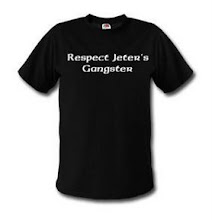The news coming out of Japan is that the Rakuten Golden Eagles are planning to offer Tanaka a record one year contract rather than post him and send him to the Major Leagues. With the new posting system in place, this is hardly surprising. For a player like Tanaka, the team knows they will get the maximum $20 million bid whether they post him now or next year—their last chance to do so before he becomes a free agent.
It may make sense, in such a situation, for the team to hold onto the player as long as possible, maximize his profit-generating value to the team, and then collect the $20 million later, since they know that's what they're going to get anyways. By capping the posting fee, teams with high level players like Tanaka know exactly how much they are going to get so the best business plan is to wait to post the player (sure, there's always the risk of injury but that clearly isn't influencing Rakuten's thinking right now, and I wouldn't expect it to be).
What's strange is that this deal was supposedly intended to level the field for small- and mid-market teams who could not compete with some of the outrageous posting fees for higher end talent being posted from Nippon Professional Baseball. But under this new system, multiple teams can bid the maximum and then have to compete on contract size, which leaves the small- and mid-market teams at the same disadvantage they were in under the old posting system.
The only leveling effect this new posting system has is to make more of the money a team spends to acquire a Japanese player through the posting system liable to the luxury tax. Maybe that's all the smaller market teams wanted, but then why not just make the posting fee taxable rather than cap it? The smaller market teams would then see more of the total money spent on the new player taxed and redistributed to them (currently, the $20 million maximum posting fee would not be factored into luxury tax calculations), and higher level players would be more likely to be posted. (You could also make any amount of the posting fee over $20 million liable to the tax, and it would have the same effect as the current system except it would make it more likely that players get posted earlier). It's in Major League Baseball's best interests that these players be posted because they tend to be impact players (early Dice-K, Yu Darvish) which generates increased interest, revenue, and on-field competition. It also helps Major League Baseball be more international, something they have pursued aggressively.
Increasingly I feel like this posting system was put in place by owners who didn't have a clear sense of what they were doing. Limiting the posting fee doesn't help smaller market teams. It doesn't help NPB or MLB. The only person helped by this arrangement is the player being posted. That hardly bothers me as I'm a labor guy, but it seems weird that ownership would make this move unilaterally since it serves none of their interests. Either these owners know something I don't, or we've just exploded the myth of the meritocracy.


2 comments:
The new system might not even benefit NPB players, because the $20 million cap is a disincentive to posting.
Under the old system, NPB teams had an incentive to post their players at peak value, maximizing the posting fee. Under the new system, NPB teams have a strong economic motive to retain players whose value easily exceeds $20 million.
While an elite NPB player would hypothetically get a much larger MLB contract under the new system than the old, an elite player doesn't get any MLB contract if his team doesn't post him. This adds risk for the player. If Tanaka gets injured or otherwise shows decline when playing for Rakuten in 2014, he may still get posted for $20 million, but may lose tens of millions in contract money that he would have earned if he had been posted at peak value.
I'm not sure who the new system is supposed to help. As you point out, the new system does not level the playing field for MLB teams, it costs NPB teams money, and it may cost NPB players too.
Yeah it's real baffling. The only thing I can think it protects against is the Kei Igawa's of the world.
Post a Comment